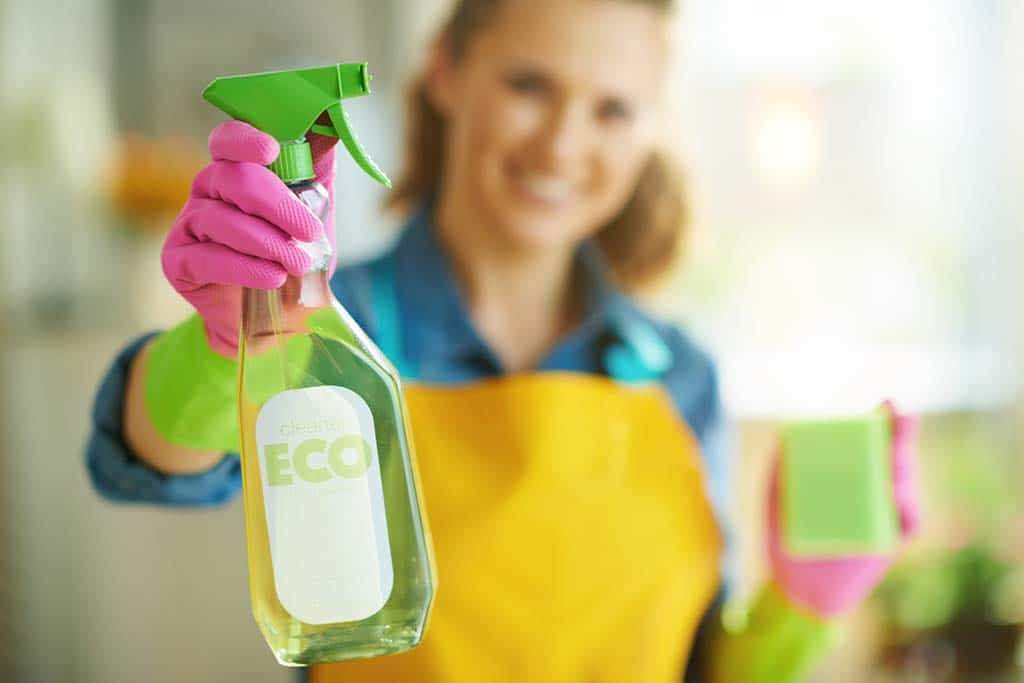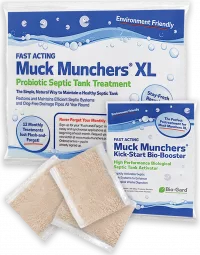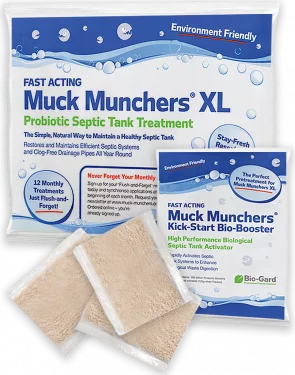Choosing Cleaning Products Safe for Septic Tanks
If you’re new to using a septic tank, you may be wondering how to choose cleaning products safe for septic tanks? Plus – can I still use the same bleach and drain unblocker I normally use?
As it stands, there is a variety of septic tank friendly cleaning products UK buyers can easily lay their hands on. However, it’s pretty important to know why the cleaning products you choose and use make all the difference.
- But what cleaning products can I use with a septic tank?
- Will my average thick cleaner kill-off all the bacteria in my septic system?
- Is there a ‘Domestos septic tank’ option or similar?

The Importance of Choosing Cleaning Products Safe for Spetic Tanks?
Cleaning products, by and large, contain chemicals. There are some cleaning products that are more eco-friendly than others, and more septic tank friendly too. However, the most popular bleaches and cleaning products use hazardous chemicals, and where they do their job to cut through grease, grime, and kill bacteria on your floors, toilets & other surfaces around your home they do have a significantly negative impact on your septic tank.
If you already know a thing or two about septic tanks and systems, then you likely know the problem we’re hinting at. Essentially –
- Using ‘regular’ cleaning products too frequently will kill the bacteria in your septic tank.
- Killing the bacteria in your septic tank is a bad thing as less bacteria won’t be able to keep the sludge down and help to stop your septic waste overflowing into the soakaway.
- If your bacteria die off, you’ll need to keep pumping-out your tank to bring the levels down. That’s going to be a very expensive option.
However, balancing clean toilets, floors and surfaces, while keeping your septic bacteria healthy is possible – even with modern lifestyles and temptations to use often cheap cleaning products, packed with chemicals and other contaminants.

What Cleaning Products are Safe for Use With a Septic Tank?
If you are searching for septic tank safe cleaning products in the UK as many of our customers do, as septic tank owners, then your best course of action is to look for eco-friendly or environmentally-responsible cleaning products as opposed to your standard bleaches and toilet cleaners.
Thankfully as consumers, regardless of whether we are on mains water supplies or septic tanks, we are becoming more environmentally conscious, with the result that more and more environmentally cleaning products are coming on the market, opening up new options for us septic tank owners. Look closely at the labels of anything you buy – many leading brands will now tell you whether or not they can be used with septic flushing.
What’s more, it is perfectly fine to use mild bleach or kitchen cleaners in moderation. If you are bleaching your toilet every single day, then there might be a need for you to switch, as your system really won’t cope and you will kill the good bacteria in your septic tank.
Most modern floor cleaners, bathroom cleaners and even those products that clean upholstery and carpets are mild enough to only cause a little aggravation in the tank. The key is to always be mindful of what you’re flushing down. Minimal chemicals is the way to go – as you might expect.
Do also consider creating your own cleaners if you are really worried! You can make a septic tank safe sink and toilet cleaner with baking soda and vinegar. All you need to do is pour in a small cup of each, leave to fizz, and then wash and flush with boiling water. That, alone, should get rid of limescale and should kill off the bacteria inside your home – without those microbes in your septic tank ever coming near the mix.
You can use dilute vinegar, for example, if you are looking for a septic tank friendly descaler – baking powder and vinegar really are manna from heaven as far as chemical-free cleaning is concerned.
What Chemicals Should You Not Put In a Septic Tank
Ultimately, virtually all chemicals are going to cause problems for you and your septic tank bacteria. Anything that’s slightly unnatural is going to risk killing your Muck Munchers, which means it’s extra-important to keep a close eye on the ingredients listed on the products you use.
A good rule of thumb is to look out for anything particularly severe such as ‘ammonia’ ‘chlorine’ or ‘chlorite’ with and without suffixes and prefixes. Ammonia is highly abrasive and will cause a human damage, let alone a tiny microbe. Therefore, if you’re set to use cleaning products that are high in unnecessary bleach chemicals or ammonia, you have two choices:
- Leave it well alone and choose a different product with fewer chemicals, or ones base on hydrogen peroxide or lactic acid
- Or use your bleach and ammonia products very sparingly
While it is always a very good idea to keep an eye out for septic tank safe cleaning products, if you are only using a small amount of chemical cleaners in any one period, you probably won’t have that much to worry about.
What’s more, you can also add Muck Munchers into your septic tank. This means that if you do happen to be killing off your bacteria regularly without realising it, you can always top them up again.
Muck Munchers are absolutely preventative measures that will save yourself worries that the tank’s not working and the need to be conscious about the nasty chemicals you’re flushing down the drains and loo. The simple fact is that Muck Munchers are formulated to combat the use of reasonable use of antibacterial chemical cleaners.
It’s also a really good idea to check out recommended products and chemicals to avoid flushing down the toilet actually are.
In Summary
If in doubt, don’t flush it. The same applies not only to your everyday chemicals but anything more solid that you intend to flush down the loo.
Your septic tank bacteria need to be left alone to thrive – and while you might be only too happy for that to be the case, it also means being careful with what you’re sending their way.
It’s always a good idea to keep topping up with Muck Munchers regardless of the products and chemicals you actually use. Otherwise, you could be facing nasty smells, extortionate pumping bills, and some real-life health hazards. Think before you flush!










